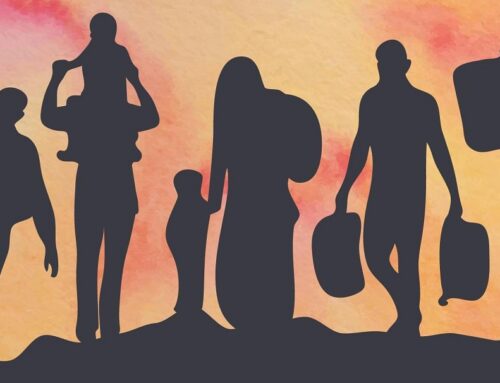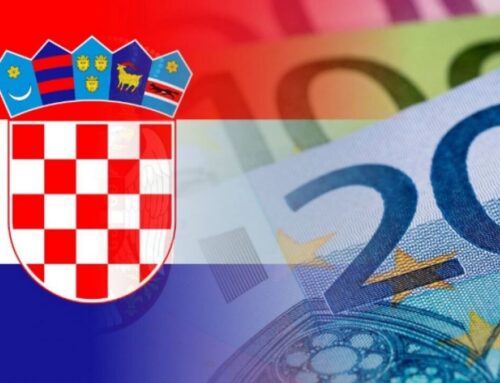Belarus
Belarusian Sprinter Runs away from Minsk Authorities
On August 1, the Belarusian National Olympic Committee made a decision to send home Kristina Timanovskaya, 24, who was supposed to participate in the 200m women’s sprint at the Tokyo Olympics, citing her emotional and mental state. Eventually, she was forcibly taken to one of Tokyo’s airports where she asked Japanese police for protection.
Consequently, Timanovskaya sought asylum in Poland which granted her and her husband humanitarian visas. Also, she had to spend two days in the Polish embassy in Tokyo over security concerns before she could fly to Vienna and successfully reach Warsaw on August 4.
The scandal erupted after Timanovskaya raised criticism on social media against her team coaches and their managerial approaches. Soon after, she was told to pack her belongings and get ready to go to Belarus. On the way to the airport, according to Timanovskaya, she had a brief conversation with her grandmother who warned her to not return to Belarus as it was not safe. Despite her critical Instagram post regarding the team management, Timanovskaya insists that she has always been far from politics and was never involved in the opposition movement against the current regime run by Belarusian President Alexander Lukashenko.
The International Olympic Committee launched an investigation into the incident on August 3. Subsequently, the IOC stripped of their accreditations two Belarusian coaches involved in the attempt to forcibly send Timanovskaya to Belarus.
Belarusian House Leader Died in Kyiv
On August 3, director of the Belarusian House in Ukraine – an NGO helping Belarusians fleeing persecution – Vitali Shishov was found dead in Kyiv. The organization accuses Minsk of murdering the activist.
26-years-old Shishov was reported missing by his partner on August 2. Later, Ukrainian police confirmed his death in a statement saying that he was found hanged in one of Kyiv parks nearby his house. The law enforcers launched an investigation promising to follow all leads, including a possible murder.
The Belarusian House in Kyiv claims that Vitali had been under surveillance and on several occasions the NGO had received warnings of the possibility of certain provocations, such as kidnapping and physical liquidation.
Since the August 2020 presidential elections that were denounced as rigged, the Belarusian regime has intensified crackdowns on both political opposition and the media leading to closure of multiple news outlets and the massive exodus of politically active citizens. Many of them have found refuge in neighboring countries, including Ukraine. The Belarusian House’s role is to help those fleeing the regime get back on their feet after leaving Belarus.
Tikhanovskaya’s UK Visit
On August 3, Belarusian opposition leader Svetlana Tikhanovskaya met with British Prime Minister Boris Johnson.
According to the Foreign Office, Johnson expressed his support to Belarusian people and Belarusian civil society in their quest for democracy. He also condemned the Lukashenko regime for human rights violations and persecutions of the opposition leaders.
Tikhanovskaya said that the meeting was conducted in a warm atmosphere. She stressed that she and the UK Prime Minister share common values, such as a belief in democracy. Moreover, Tikhanovskaya called on Great Britain to provide ‘support for free media and be more vocal about the crisis’ in Belarus.
Later that day, she also had a meeting with UK Foreign Secretary Dominic Raab. He expressed solidarity with the Belarusian people, civil society and independent media. Meanwhile, Tikhanovskaya thanked the UK for raising the issue of the ongoing crisis in Belarus at the G7 and the UN. She also highlighted the crucial role of the UK, the US, the EU, and Canada in acting jointly to close loopholes in sanctions against the current regime in Belarus.
Svetlana Tikhanovskaya was one of the candidates running for presidency in the largely disputed 2020 elections in Belarus. The incumbent president, Alexander Lukashenko, claimed victory, whereas the opposition and Tikhanovskaya refused to accept such results. Since then, Tikhanoskaya has been living in exile in Lithuania.
Opposition Leaders on Trial
On August 4, Maria Kolesnikova, one of the leaders of Belarusian opposition, who was arrested last September after refusing to leave the country, appeared at a court as her trial began behind closed doors. She and another opposition figure Maxim Znak are facing up to 12 years in prison on charges of extremism.
Kolesnikova became one of three female opposition leaders who challenged results of the largely questionable August 2020 presidential elections that were said to have been rigged in favor of the incumbent president Alexander Lukashenko. The elections triggered a massive wave of weeks-long protests all around Belarus.
Kolesnikova, along with Znak, is one of top members of the so-called National Coordination Council, an organization set up by exiled opposition leader Svetlana Tikhanovskaya to coordinate opposition’s activities in preparation for new elections. The Council is accused of attempting to stage a coup against the current regime. Thus, Kolesnikova and Znak have been charged with ‘conspiracy or other actions committed with the aim of seizing power’, threatening national security and ‘the creation of an extremist group’.
At the court, Kolesnikova appeared to be in a good mood, smiling and dancing. She was also making a heart sign with her hands – this sign became her trademark during last year’s protests.
Border Tensions Continue
On August 5, Belarusian President Alexander Lukashenko ordered the country’s security services to shut down the border with ‘adjacent states’, as Lithuania started turning away migrants entering the country from Belarus. Vilnius accuses Minsk of waging a hybrid war on the neighboring state after the European Union imposed sanctions on Belarus over the forced landing of an aircraft flying from Greece to Lithuania with a dissident Belarusian journalist on board.
Minsk is said to have been involved in facilitating illegal border crossing of migrants, primarily citizens of Middle East countries, from the Belarusian territory into Lithuania. Recently, Lithuanian authorities turned away 180 people attempting to enter the country. Lukashenko reacted by ordering to ‘close every meter of the border’ in order to prevent those Lithuania refused to accept from coming to Belarus.
Also, Minsk accuses Vilnius of being inhumane towards migrants with illnesses and injuries while sending them across the border to Belarus, citing an incident with death of a migrant. Lithuania dismisses such reports as propaganda and part of the hybrid attack Minsk launched on the neighboring state.
Ukraine
First Female Commander of the Ukrainian Armed Forces
On July 30, it was announced that Minister of Defense of Ukraine Andrii Taran appointed Colonel of the Medical Service, Chief Inspector of the Main Inspectorate of the Ministry of Defense Tetiana Ostashchenko to the position of Commander of the Medical Forces of the Ukrainian Army.
Hereby, colonel of the Medical Service Tetiana Ostashchenko became the first female commander in the Ukrainian Armed Forces. Taran commented on it saying that the appointment was made as part of the larger move towards a new model of Armed Forces in line with NATO principles and approaches. ‘Women now have the opportunity to serve in the military on an equal footing with men’, said the Defense Minister.
He also expressed hope that the newly appointed commander will be able to improve the current conditions of the medical service and create a favorable basis for further development towards NATO standards.
According to Rubryka,Tetiana Ostashchenko was born in 1974 in Lviv, graduated from the Pharmaceutical Faculty of the Lviv State Medical Institute, and has an extensive military career involving multiple chief positions in the Ukrainian military.
Zelenskyy: Donbas will never be Russian
On August 5, Ukrainian President Volodymyr Zelenskyy presented the Donbas inhabitants with a choice involving their identity asking them to choose whether they are ‘with Russia or with Ukraine’. He also stressed that Donbas will never be Russian.
‘There is a saying: ‘Someone is doing a leg split.’ They don’t know what to do, take time to make a choice, and just can’t make it, not realizing who they are. The most important thing in this story is to understand for yourself: you are Russian? Are you in Russia? I’m not talking about nationality, but about people’s internal choices. Are you Ukrainian? Is this your land? Is this your Homeland or are you a guest here?’ said the president.
I believe that if you live in the temporarily occupied territory of Donbas today and you think that ‘our way is right,’ ‘we are heading to Russia,’ ‘we are Russians,’ then it would be a big mistake to stay in Donbas… Because without Ukraine, there will be no civilization in this territory. Ukraine will keep developing, building things. And a part of Donbas in its occupied, cut-off form won’t be developing at all. So people will never be happy there,’ the head of state added.
Zelenskyy also said Donbas will never become part of the Russian territory: ‘It just won’t happen, ever. No matter how long it is occupied’. He also addressed those who associate themselves with Russia by saying that for the sake of their ‘children and grandchildren they’d rather go and look for a place in Russia – that would be the right thing to do.’
Russia reacted immediately by condemning such rhetoric. Russian Foreign Ministry’s spokeswoman Maria Zakharova stated that ‘instead of uniting Ukraine and its multi-ethnic people Zelenskyy sows seeds of discord, thus ultimately ruining the country’. She added that the Ukranian president is paving the way for the surrender of the country’s sovereignty by repeating remarks about the need to end the imaginary occupation of Donbass amid Kiev’s attempts to join the European Union and NATO’.




